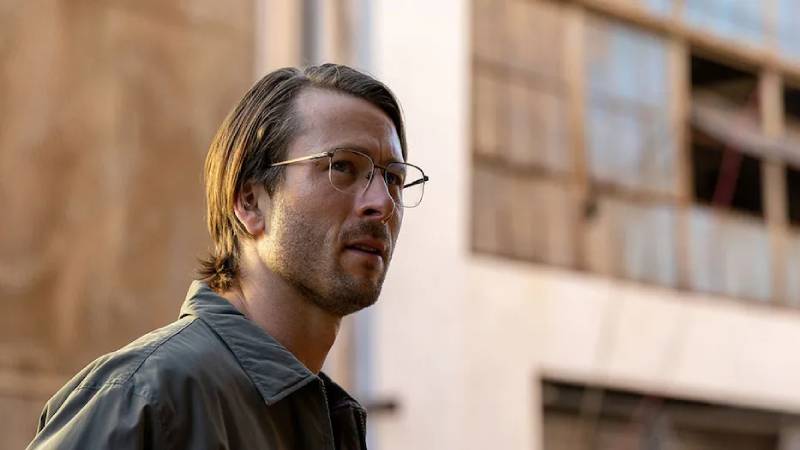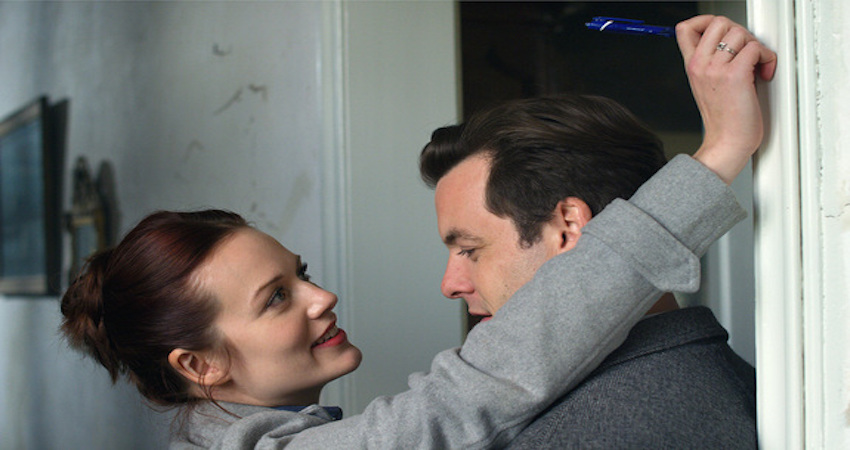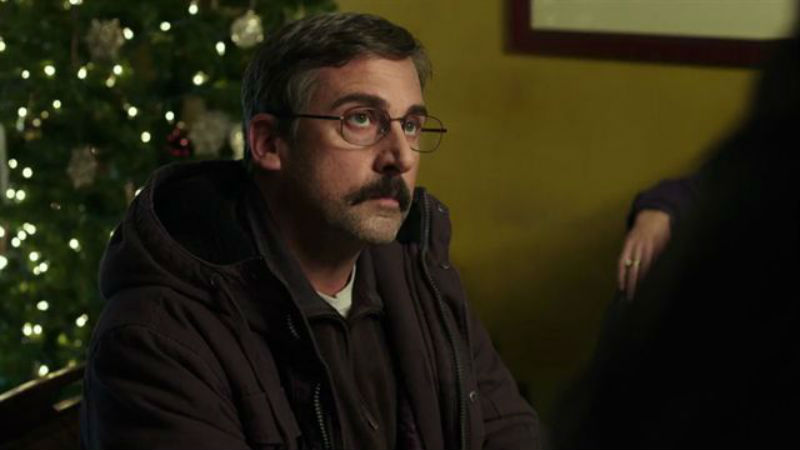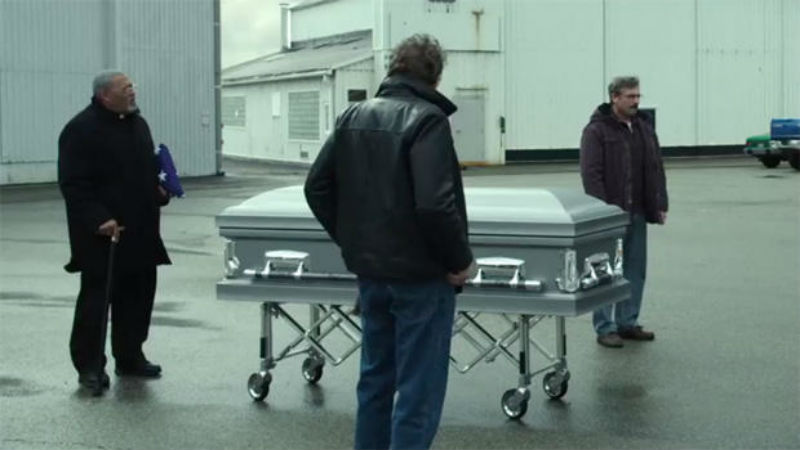For 35 years, Richard Linklater has explored philosophical quandaries around the self, and the cultural factors which shape it, with affable ease. When that laid-back layer is peeled back, flashes of primitive, primarily masculine violence erupt, suggesting the inseparable relationship between ideological formation and culturally sanctioned ferocity. Fitting, then, that his newest film Hit Man packages this dialectic in a Linklaterian hero whose blithe philosophising allows him distance from the brutal archetype he inhabits with total abandon.
That man is Gary Johnson, a real-life college professor who supplements his income providing technical support for the New Orleans Police Department’s Murder-for-Hire outfit. When Jasper (Austin Amelia), a particularly unscrupulous undercover cop, is put on administrative leave, Gary’s suddenly thrust into the spotlight as a hitman tasked with busting his potential clients. His first job as “Ron” is, despite his nerves, a resounding success – almost too much so as he shifts from convincingly describing human dismemberment to marvelling at the wonder of the pileated woodpecker.
Johnson is played by Glen Powell, who also wrote the film’s script, with chameleonic charisma. His affectless geniality masks a passionless view of humanity, one that equivocates it with household pets “begging for scraps.” (Though dogs “don’t apologise for it.”) But Gary’s listlessness is jolted when he meets Madison (Adria Arjona), a beautiful woman who asks him to ax her wealthy husband. He dissuades her, and their subsequent courtship instigates a snowball effect that draws them deeper into a growing web of pleasure and peril.

Hit Man plays with film noir conventions to reflexively comment on the insidious ways cultural images of hitmen from films like Branded to Kill (Seijun Suzuki, 1967) to In Bruges (Martin McDonagh, 2008) have inundated our collective imagination. This semiotic compendium of virile brute force anticipates the fastidious detail Gary puts into his disguises, indulging an unorthodox form of capitalist wish fulfilment for his perps. “I almost envy their naivity and passion,” he remarks. While these scenes have a wicked edge, Linklater’s too empathetic a filmmaker to view those victims with total contempt. He knows all too well how our own naïve passions are shaped by the cultural images we’ve absorbed and fetishised.
Gary confronts that epistemic dilemma’s most dangerous consequences when the twin forces of Jasper and Madison’s volatile ex-husband (Evan Holtzman) complicate his budding romance. Powell and Arjona have palpable chemistry, and their pillow talk is bizarrely sweet in their “contractual” rejection of convention. But the film’s stakes are blunted by its characterisation of Madison herself. Arjona is left to fill in the blanks of a past checkered by trauma, but a third-act twist sells her short by promising growth beyond Gary’s perception of her which, ultimately, fails to meaningfully materialize. “I don’t know how to pretend,” she confesses to a man who shows her how, a conceit that neglects the myriad femmes fatales and their complex motives for mastering duplicity.
While it’s never not an enjoyable watch, thanks largely to Linklater’s assured direction of his accomplished cast, Hit Man only partially realises its Neo-noir potential. The ethical ramifications of the film’s splendidly dark ending do leave an acerbic aftertaste, though the script’s cleverness doesn’t always translate into convincing drama as its characters hurtle toward that denouement. The principal question of how personal and cultural narratives shape identity is a beguiling one, yet the predominantly masculine rhetorical framing stymies its potency.
Hit Man shows at the 61st New York International Film Festival and also at the 67th BFI London Film Festival. It’s out on Netflix soon.











